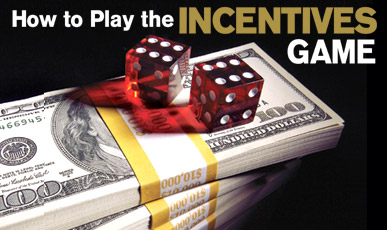Recession - or Not?
Feb/Mar 08

The Business Cycle Dating Committee of the National Bureau of Economic Research (NBER) has a slightly different definition. The Bureau defines a recession as "a significant decline in economic activity spread across the economy, lasting more than a few months, normally visible in real GDP, real income, employment, industrial production," and so forth.
By the former definition, we are not yet in a recession. The GDP continued to grow in the fourth quarter of 2007, albeit by only 0.6 percent, which was down sharply from the 4.9 percent rate of GDP growth recorded in the third quarter of last year. However, the "significant decline" in GDP would meet the NBER's definition of recession, especially since it has been accompanied by a slowdown in worker productivity and increasing worker layoffs.
So which definition should we use - and, more importantly, does it really matter what it's called? Probably not, since just the idea that the economy is heading toward recession is putting enough fear into the hearts of consumers who previously fueled the long-running U.S. economic expansion. I'd go with the NBER definition, which means that we might not know we're in a recession until we're halfway through it.
In fact, according to a recent AP poll, 61 percent of the public believes the country is already in a recession. They don't need any definitions from economic analysts.
It just feels like a recession to them - the housing market is depressed, lenders are tightening up on credit, people are getting laid off from their jobs, and belt-tightening is under way. Unfortunately, this general feeling of gloom and cutting back on spending may actually cause the economy to stall even further as we move through the first quarter of 2008.
As we went to press on this issue, Congress passed a $168 billion stimulus package in an attempt to recharge the slowing economy. It will provide tax rebates to individuals and incentives for businesses. Only time will tell if it will work to shorten - or forestall - a recession, assuming we are already in one - or not.
Project Announcements
SencorpWhite Plans Hamilton, Ohio, Headquarters-Manufacturing Operations
12/29/2025
Kraken Technologies Limited Plans New York City Headquarters Operations
12/29/2025
Lupin Expands Coral Springs, Florida, Operations
12/29/2025
KPPC Advanced Chemicals Expands Casa Grande, Arizona, Operations
12/29/2025
Volvo Group Plans Tacoma, Washington, Distribution Operations
12/29/2025
Alnylam Pharmaceuticals Expands Norton, Massachusetts, Operations
12/29/2025
Most Read
-
The Workforce Bottleneck in America’s Manufacturing Revival
Q4 2025
-
Rethinking Local Governments Through Consolidation and Choice
Q3 2025
-
Data Centers in 2025: When Power Became the Gatekeeper
Q4 2025
-
Lead with Facts, Land the Deal
Q3 2025
-
Tariff Shockwaves Hit the Industrial Sector
Q4 2025
-
Investors Seek Shelter in Food-Focused Real Estate
Q3 2025
-
America’s Aerospace Reboot
Q3 2025